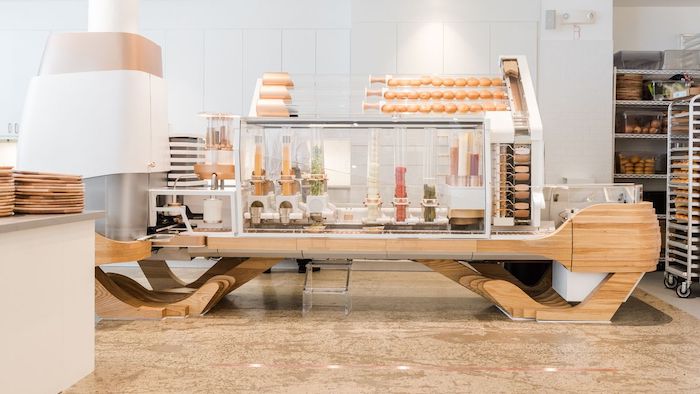R&D Tax Credits for the Food & Beverage Industry

Consumer demands are driving innovation in the food and beverage industry across the globe. A substantial percentage of companies within the food and beverage industry invest in innovation. What many of the food and beverage companies do not realize is that those dollars spent on innovation may make those companies ideal candidates for the research and development tax credit. The R&D tax credit was essentially authorized for the specific purpose of encouraging the research and development of new products and processes. That said, a majority of food and beverage industry companies fail to take advantage of America’s largest tax incentive. In 2016 alone, nearly $16 billion in R&D tax credits were claimed, yet food and beverage companies continue to leave money on the table by not claiming the research and development tax credits made available to them. The primary reasons food and beverage companies aren’t claiming R&D tax credits are they either don’t know the credits exist or don’t believe they qualify to claim the R&D tax credits. The best way to learn whether your food and beverage company activities are R&D tax credit eligible is to work with an experienced and well-qualified R&D tax credit consultant. Schedule a free consultation with Clarus R+D to learn more about the benefits of the R&D tax credit program or to discuss whether you are eligible to claim the credit. Clarus’ technology-driven solution empowers companies to fuel their growth with America’s largest tax incentive.
Contact us for additional information
Food & beverage industry companies can claim R&D tax credits
Whether your food and beverage company develops or enhances new food products, systems or processes, it has likely engaged in qualifying research activities which would make those activities R&D tax credit eligible. From microbrewers and distillers to those companies on the frontlines of producing innovations in organic farming, the companies eligible to claim R&D tax credits within the food and beverage industry is increasing. Furthermore, the Covid-19 pandemic has forced the hand of innovation, particularly within the food and beverage industry. as it races to create innovations in the packaging and processing of food to make it safer for both the handler and the consumer. The opportunities for companies to benefit from the credit continue to grow. Clarus R+D has worked with food and beverage companies across the country to help them claim the R&D tax credit. Examples of food and beverage industry activities that may be considered qualified research include:
Food and Beverage
- Improving the taste, texture, or nutritional content of food product formulations
- Incorporating new or sustainable ingredients in a formula
- Producing sample batches in a test kitchen or a pilot run
Manufacturing and Other Processes
- Developing techniques that will reduce costs and/or improve product consistency
- Innovation in tracking food waste similar to LeanPath
- Redesigning processes to comply with new federal or state regulations
- Improving machinery and equipment to ensure safe handling of food
- Use of technology to reduce or replace service elements in restaurants
Packaging
- Creating new packaging to improve shelf life, durability, and/or product integrity
- Reducing materials or using more environmentally friendly materials in packaging
- Introducing new or alternative materials to improve packaging
- Zero waste packaging
- Self chilling cans
- Self heating food packaging
- Compostable packaging
- Skin packaging
- Enhancements in modified atmosphere packaging
Sustainability Efforts
- Aquaponics
- Hydroponics
- Aeroponics
- Development of Sustainable Future Food Systems
- Developing processes to convert waste to energy
- Vertical farming, precision agriculture and the use of drones to enhance production
I encourage any entrepreneur or company with significant dev expenses to pursue the R&D tax credit. The ROI compared to the amount of time spent is worth it.
Jeff Wilkins / FMX
You don’t have to be among the largest food and beverage industry innovators to take advantage of the research and development tax credit. Small food and beverage companies and startups are even eligible to claim the R&D tax credit. In fact, recent changes to the applicable laws have made it easier than ever for more food and beverage companies to take advantage of the R&D tax credit.
Learn how your business can claim the R&D tax credit
Benefits of R&D tax credits for the food and beverage industry
The research and development tax credit is a government-sponsored tax incentive available to companies who conduct research and development within the United States. The credit was implemented as a Congressional response to the decline in research spending which negatively impacted the Country’s economic growth, productivity gains, and overall global competitiveness. The R&D tax credit was initially implemented in 1981 and has since been reauthorized several times. In 2015, when the Protecting Americans from Tax Hikes (PATH) Act was adopted, the Research and Development (R&D) credit became a permanent part of the tax code
Many people within the food and beverage industry assume the R&D tax credit is available only to the big innovators within the food and beverage industry. This, of course, is not the case. You don’t have to be as large as Nestle or PepsiCo to be eligible for the credit. A food and beverage company is eligible for the incentive as long as they are engaged in qualified research activities, regardless of the size of their company. Under the current tax code, any company that develops or improves products or processes may be eligible for the credit. The number of food and beverage companies who engage in eligible activities is ever-increasing, especially in light of innovations driven by the global pandemic. Clarus R+D is the tax credit consultant of choice to help your food and beverage company take advantage of the research and development tax incentive.

Food and beverage industry companies may be unaware of the tremendous benefits of R&D tax credits. The credit is worth 7-10% of qualified research expenses. This is a dollar-for-dollar credit against taxes owed. Plus, it carries forward 20 years. For startups, applying the credit against payroll taxes is a valuable, non-dilutive funding opportunity. Eligible expenses for the R&D tax credit include U.S.-based wages, contracting, and supply costs. Most typically, wages are the largest qualified expense, but there must be nexus between the expense and qualified project. Additionally, most states offer an R&D tax credit that can supplement the federal R&D tax credit.
Schedule a demo with Clarus R+D to learn more
Food and beverage industry innovation and R&D tax credit eligibility
Working with a professional R&D tax credit consultant, like Clarus R+D, is the best way for you to determine your tax credit eligibility. In order to be eligible for the research and development tax credit, your food and beverage industry company must engage in qualified research. Qualified research generally is private sector or commercially driven development intended to yield innovation within a scientific or technological field. The following four-part test determines whether an activity is considered qualified research and, thus, eligible for the R&D tax credit.
Permitted Purpose
The purpose of the activity or project must be to create new (or improve existing) functionality, performance, reliability, or quality of a business component. A business component is defined as any product, process, technique, invention, formula, or computer software that the taxpayer intends to hold for sale, lease, license, or actual use in the taxpayer’s trade or business.
Elimination of Uncertainty
The taxpayer must intend to discover information that would eliminate uncertainty concerning the development or improvement of the business component. Uncertainty exists if the information available to the taxpayer does not establish the capability of development or improvement, method of development or improvement, or the appropriateness of the business component’s design.
Process of Experimentation
The taxpayer must undergo a systematic process designed to evaluate one or more alternatives to achieve a result where the capability or the method of achieving that result, or the appropriate design of that result, is uncertain as of the beginning of the taxpayer’s research activities. Treasury Regulations define this as broadly as conventional implementation of the scientific method to something as informal as systematic trial and error process.
Technological in Nature
The process of experimentation used to discover information must fundamentally rely on principles of the physical or biological sciences, engineering, or computer science. A taxpayer may employ existing technologies and may rely on existing principles of the physical or biological sciences, engineering, or computer science to satisfy this requirement. Research activities that qualify for R&D tax credits must be conducted in the U.S. If your business does any of the following, it likely qualifies for the R&D tax credit:
-
-
- Develops or designs new products or processes
- Enhances existing products or processes
- Develops or improves upon existing prototypes and software
-
Exclusions
Even if your work passes the four-part test, there are a few exclusions to the R&D tax credit. Expenses incurred under the exclusions will not qualify for the incentive. Some of these already appear in the four-part test, including the need to rely on hard sciences. The activity must take place in the U.S. and cannot include routine data collection or market research. Also, activities cannot receive funding from an unrelated third party because your company might not retain ownership of the resulting intellectual property.
Clarus R+D will work with you to help you understand what is considered qualified research for purposes of determining R&D tax credit eligibility for your food and beverage company.
Learn more about R&D tax credits
R&D tax credits: Food and beverage industry and innovation
There have been significant strides in food and beverage innovations over the last several years. The first innovations that come to mind are those probably related to innovations in sustainability and sustainable agriculture. One can also easily imagine innovations related to manufacturing processes. What about innovations in your favorite restaurant? Consider these examples of food and beverage industry innovation that may soon be featured in a restaurant near you.
- Use of robots in stocking
- Drone food delivery
- Restaurant app expansions
- Interactive cafe tables
- Mind reading menus
- Apps to match food to music
- Video integrated dining rooms
- Robot wait staff
- Multi-sensory dining experiences
- 3D printing cafes
- Drone bartenders
The examples of innovation within the food and beverage industry are almost too many to even imagine. Your company’s work on these and other innovations will likely be considered qualified research for R&D tax credit eligibility purposes. As long as your company activities satisfy the four-part test described above, you may be eligible to claim tax credits for your work. Clarus R + D will work with you and your team to help determine if your food and beverage industry company is eligible to claim R&D tax credits.

Contact Clarus R+D for additional information
R&D tax credit consultants: What to expect
Working with a professional R&D tax credit advisor is the best way to determine eligibility and maximize your benefit. Here is what you can expect by selecting Clarus R+D as your R&D tax credit consultants:
-
-
- Clarus R+D provides a team of professionals with expert credentials able to answer all your R&D tax credit questions.
- Our proprietary software streamlines R&D studies which maximizes your ROI.
- Clarus has expert knowledge of the IRS regulations relating to the research and development tax credit, IRC Section 41, as well as the regulations pertaining to state-specific research and development credits.
- Clarus has extensive experience in recognizing qualified research activities and expenditures.
- Our time-proven methodology has yielded maximum benefits to our clients.
- The Clarus team has helped hundreds of clients claim millions in R&D tax credits.
- We place emphasis on helping growth businesses take advantage of the tax incentive.
- Clarus does the work for you; our web-based app allows you to enter information at your own pace.
- We have extensive IRS and state audit experience and provide our clients with audit support.
- We have maintained an exceptional success rate in applying for the R&D tax credit.
- We work directly with our clients and their respective accounting firm and payroll processor.
- Our process saves valuable time and resources within the engineering and finance departments.
- Our fees are very competitive.
- Our performance, success rate, and unparalleled quality of service result in high client loyalty
-
Learn more about R&D tax credits
Ready to get started?
Schedule a free consultation with our team of experts to learn more. We’ll discuss the R&D tax credit and help you determine if our solution is a fit for your company.
Schedule a call with Clarus R+D
Clarus R+D gave us tremendous ROI. Easy software. Helpful people. Reasonable fees.
Richard Cumberland / Zupt
Share
ABOUT CLARUS R+DWith custom software backed by a team of tax experts, Clarus R+D specializes in tax credits for growth businesses. Our technology-driven solution simplifies the process, maximizes benefit, and ensures compliance. We partner with accounting firms, financial advisors, investors, payroll providers, and more.